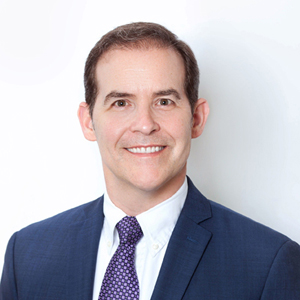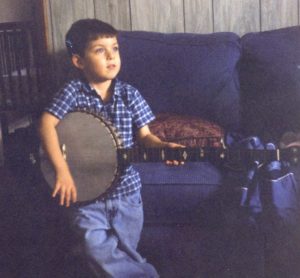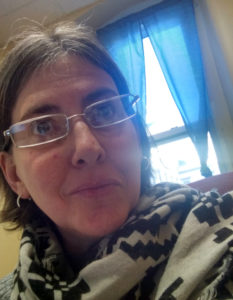DBSAlliance.org is Getting a New Face
DBSA is launching a brand-new website! Based on your feedback, we’ve made significant enhancements to DBSAlliance.org. In fact, the new website is mobile-friendly, which means even when you’re on the go, you’ll be able to find resources and information on how to stay well.
You can expect to find:
Hope
DBSA wouldn’t be where we are without the strength of peers—individuals living with a mood disorder. DBSA programs like I’m Living Proof and Life Unlimited display courageous individuals who have moved beyond their diagnosis and are living thriving lives. We’re putting the spotlight on these peers to help inspire others to find their individual path to wellness.
Help
In times of crisis, clarity is key. We’ve made it even easier to find resources for emergency situations as well as information on how to prevent future crisis. Whether you’re looking for help for yourself or a loved one, we’ve got your back.
Support
DBSA Chapters and Support Groups are the backbone of our organization and we’ve made finding an in-person or online support group a priority on the new layout. For parents who are looking for an online community, the Balanced Mind Parent Network is one click away.
Education
We’ve streamlined our educational resources so that you’ll be able to navigate all of our rich content on mood disorders and co-occurring illnesses. You will be able to filter our podcasts, videos, webinars, and Ask the Doc features so that you can quickly scan the information that’s important to you.
Stay tuned—we’ll be launching the new and improved dbsalliance.org at end of March!
Note from Michael Pollock, DBSA CEO

DBSA will be launching our new website at the end of March. With the pro bono help of the company Fuzzy Math, we’ve created a site that is modern, clean-looking, and more familiar to other sites that exist today. The new website will also be mobile-friendly, so for those of you who use a smart phone, you will find our web content easier to navigate.
At the end of the day, accessing and navigating the website is really a means to an end: giving you the ability to review useful content, download tools and resources, and engage with others. Many of you are familiar with how to take on these tasks using the “old” DBSA website. So just like many other aspects of our lives, getting used to the “new” site may require some adjustments.
For some of you—particularly if you live with a mood disorder or offer support to someone with a mental health condition—adapting to change may be par for the course, so adapting to the new website’s layout will create no issues for you. For others, adjusting to ‘one more thing’ may require time and patience as you navigate the site to seek out the valuable facts and information available to you.
Ultimately, we want every visitor to find www.dbsalliance.org to be a trusted source of information that offers hope, help, support, and education regarding mood disorders. I hope you’ll take time to check it out.
Michael Pollock
Chief Executive Officer
Ask the Doc
Court Ruling Increases Access to Mental Health Care
The standards for medical necessity used by some insurance plans have been a barrier to accessing mental health care for many plan subscribers. Now, because of a landmark court ruling in California, the largest managed behavioral health provider in the country will have to stop using overly restrictive standards to deny mental health care.
In this historic class action ruling, the United States District Court held that United Behavioral Health (“UBH/Optum”), illegally and systematically denied mental health coverage based on flawed medical necessity criteria.
Court Puts Patients First
The ruling found the following to be the generally accepted standards for effective behavioral healthcare from which UBH’s guidelines deviated:
- Treatment of the underlying condition and not limited to alleviation of current symptoms;
- Coordinated treatment of co-occurring behavioral health and/or medical conditions that considers the interactions of the conditions for determining the appropriate level of care;
- Treatment for mental health should be received at the least intensive and restrictive level of care that is safe and effective. Placement in a less restrictive environment is appropriate only if it is likely to be safe and just as effective as treatment at a higher level of care in addressing a patient’s overall condition, including underlying and co-occurring conditions;
- Duration of treatment is based on individual needs; there is no specific limit on the duration of such treatment;
- Level of care should be chosen based on a multidimensional assessment that takes into account a wide variety of information about the individual.
Although the Mental Health Parity and Addiction Equity Act of 2008 requires parity for mental health benefits, insurers can evaluate claims for medical necessity. Subscribers can end up being denied the type or amount of care they actually need when insurers apply their own guidelines or medical necessity criteria. The consequences to patients can be devastating.
This ruling stems from two consolidated class actions brought under the Employee Retirement Income Security Act of 1974 (“ERISA”) in 2014. While the certified classes encompass tens of thousands of ERISA insureds, non-ERISA insureds (such as governmental employees) adversely impacted by UBH’s defective guidelines must rely on state and federal regulators to intervene on their behalf.
To continue to receive communications about issues that support access to quality mental health care, register here.
Managing Your Depression: A Closer Look at Medications and Finding the Right Balance
Major depressive disorder (MDD), even the toughest cases, can be treated. Finding the best treatment plan often involves trial and error, so it is really important that people who have MDD and their loved ones know what options there are and how to ask doctors the right questions, give feedback, advocate for their needs, and feel empowered to participate in their care.
We’re pleased to share a new video educational program for families managing MDD that features clinical experts and people who have lived with MDD. In this program, you’ll learn:
- Why it’s important to participate in the decisions with healthcare professionals
- How to bring up your concerns, questions, and preferences about medications
- When to speak up if a medicine isn’t working, or has really bad side effects
- The different risks and benefits of different MDD medicines
- Additional resources offered by pharmacies and advocacy groups
Register here to watch the program at a time that is convenient for you.
Madness & The Mandolin

“The Madness & The Mandolin” is the journey of one young bluegrass musician and his path to wellness through changing aspects of his lifestyle. Kelley Gibson, a young musician, learns to cope with manic episodes and challenges with autism spectrum disorder through welcoming wellness into his life—exercise, reading, and music—illustrating the benefit of the use of wellness strategies as a compliment to traditional medical treatment. This film reminds us that effective treatment is multifaceted.
Visit the website to find out more informaiton and watch the trailer!
Life Unlimited: Catherine Herman

I’ve had many years dealing with depression and mania. My symptoms started in my late teens. I would sit in despair and cry or lay in a stupor as though in a cocoon. Other times I would engage in tremendous parties, soar with spiritual ecstasy, or plan political take-overs. I suppose that since I was never suicidal early on, I didn’t receive help. I wasn’t all that familiar with bipolar disorder; I just thought this was life.
It wasn’t until I hit graduate school that things got out of control. I became so depressed and felt suicidal. A friend advised me to go to the student counselor. I remember sitting on a fire escape with my backpack in my lap, contemplating whether or not to go. I did. I spoke to the counselor for one hour before she politely excused herself and returned to say that my case was too serious for me to be seen there in the student center, but that I would need to see their psychiatrist. She led me down the hall to my first experiences with medications. My world was thus forever changed.
The next bipolar milestone had to do with mania. I began losing sleep due to creative thinking into the wee hours of the night. I wrote a thesis in three days and choreographed a ballet in a single night. I then began to make large political signs to place along the freeway. This is when the police arrived at the bidding of my boss and I was carted away to a psychiatric hospital. This was the first in a long line of hospitalizations, medications and electroconvulsive therapy treatments. I visited three community hospitals, each with lengthy stays while the doctors tried to stabilize me.
After these experiences, I decided to go back to school and received a Fulbright to go to Germany and do research. I attempted to do this without medication. It proved to be a year from hell with constant mood swings. I spoke at an international conference and returned to the States one month early to stabilize once again. Lesson: Don’t go off your medication. I taught in the university system for four years before deciding to work on my doctorate. There was a mix of support and negativity when people found out I was doing this. The major sentiment was one of displeasure and worry. But with an amazing therapist, doctor, certain members of my family and supportive friends, I accomplished my final goal with just three hospitalizations and one round of electroconvulsive therapy. I have been stable for years now. I work as a coordinator of an inpatient psychiatric unit and I am happy, finally ok, just fine.
Read more inspiring stories. If you would like to participate in our Life Unlimited feature by sharing your story, please submit your contact information.
 bp Magazine: How to Get Your Life Back on Course After a Bipolar Relapse
bp Magazine: How to Get Your Life Back on Course After a Bipolar Relapse
Repairing relationships, routines, and reputation after a severe episode of (hypo)mania or bipolar depression requires small steps and a willingness to seek change.
Wellness Tips from Peers
Stay in your Own Lane
Depression
My depression gets worse when I compare myself to others, so it helps when I focus on my own goals and desires.
Mindfulness
Bipolar Disorder
Especially when my anxiety is high, it helps to stop and focus on my breath. The only thing that matters during these times is my inhalation and exhalation.
Water
Wellness
Whether it’s taking a bath or visiting the lake, I find that water to be grounding.


